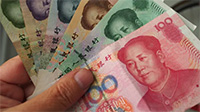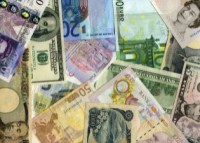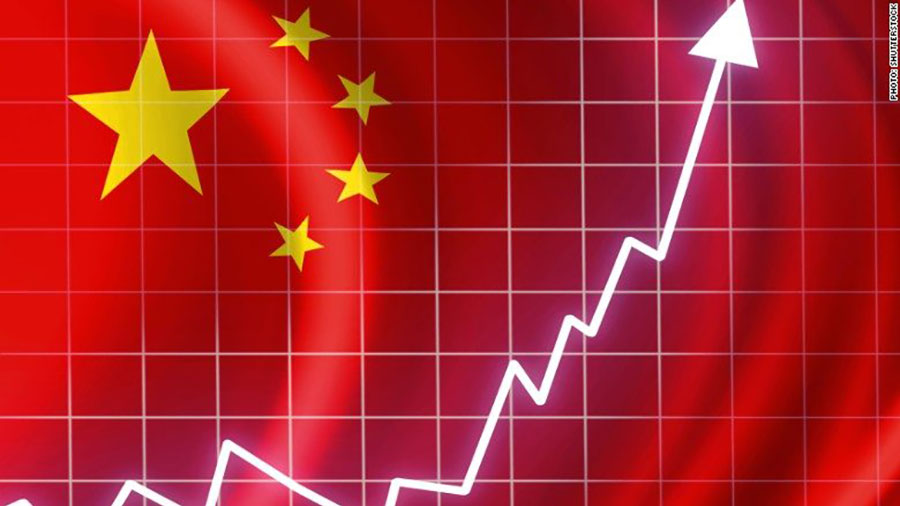What Belt & Road Slowdown? China Tops Global Outbound Investment And Inbound Investment Rankings And Just Liberalized Hong Kong’s Financial Services Industry
Foreign direct investment and China outbound investment have hit record levels.
Western media often takes aim at China’s Belt and Road Initiative, which has to be one of the inaccurately reported of all China’s State Initiatives. Readers themselves will be familiar with discussions of ‘slowdowns’, ‘disruptions’, ‘debt traps’ and all manner of problems. It is a similar story of China domestic slowdowns, with a strict Covid policy attracting all sorts of negative attention amongst stories of expats leaving China and Hong Kong ‘in droves’.
While the latter to some extent is partially true, it is also understandable. Strict lockdown regulations mean that for now, rather than work from home in China, todays Zoom and Teams software mean that Western expats are better off at present back in their home countries where family, friends, and easier covid rules afford a better quality of life. What isn’t mentioned is that many of them will return, and those that do not will inevitably be replaced. I explain the rationale as follows:
Why has there been a strict China and Hong Kong lockdown?

However, both China and Hong Kong can be expected to face restrictions for the rest of 2022: the Communist Party has its 20th National Party Congress in October, and the attending 2,300 politicians have plenty to deal with without having to face Covid problems. Two-thirds of all CPC members are expected to be changed in a radical shake-up – a huge change. The CCP Congress will endorse the membership list of the Central Commission for Discipline Inspection and will elect the Central Committee, which in turn will approve the members of the Political Bureau and its Standing Committee, the most powerful decision-making body. Even the role of Xi Jinping is up for discussion, and it is believed that he will either be re-elected as the General Secretary of the Chinese Communist Party or will be newly elected as the Chairman of the Chinese Communist Party, a title that has not been used since 1982. This was the highest position held by Mao Zedong and remains revered. Placing Xi in this role is equivalent to placing him on the same political pedestal and would be hugely symbolic in China.
It is the most significant political shake up in China since the early 1990’s – and surprises could yet be in store. As at today, as it has been for much of the year, political deals are being done behind the scenes, and political strategies defined. This is why China has to some extent, sealed itself off: it doesn’t want, or need any disruptions during this time. Once the Congress is done however, and the dust has settled down, I expect China to start to return to some normality in early 2023. Spring Festival next year is relatively early on January 22, readers can expect the first signs of lockdown withdrawal, a new wave of Covid vaccines, and travel restrictions to ease into February and March. Returning expats can expect to be looking at April 2023 to be reunited with their China and Hong Kong colleagues. It is not the Chinese and Hong Kong economies or even Covid (although it has been used as an excuse) that have been responsible for expats departing and locals working from home, also in the mix is a political lockdown while China remains in a period of political change.
China Outbound Investment

Despite this situation, China has in fact been working as normal. China’s outward investment value in 2021 and the first quarter of 2022 saw a 12.3% year-on-year increase over previous levels, topping the global outward investment chart for the first time at US$153.71 billion, according to the Report on Chinese Enterprises Globalization 2021-2022 published by the Center for China & Globalization (CCG). This is important because the CCG is non-Governmental, independent, and was founded in 2008 by a committee of the Western Returned Scholars Association, an organization under the United Front Work Department. It is based in Beijing.
China’s outward investment value actually accounted for 20.2% of all global foreign investment value, even amid a downward trend in global investment due to COVID-19. In the first quarter of 2022, China’s non-financial investment to countries along Belt & Road Initiative reached US$5.26 billion, a year-on-year increase of 19%.
Since China joined the World Trade Organization about 20 years ago, the country’s outward investment volume grew by 57 times that of 2002 levels, an annual increase of 25.2%. That has seen China jump from twenty-sixth place in global outbound investment, to first place. There has been no slowdown in Belt and Road Initiative spending.
China Inbound Foreign Direct Investment

In terms of attracting foreign investment, China’s actual use of foreign investment in 2021 surpassed the milestone of 1 trillion yuan (US$149.77 billion) for the first time, reaching 1.15 trillion yuan. The use of ‘actual’ means that the money arrived and is being used – sometimes politicians try and fudge number by using the term ‘committed’ – a different status and not always realised.
In the first four months of 2022, China’s actual used foreign investment stood at US$74.47 billion – not including investments in the bank, stock and insurance sectors. That is an additional increase of 20.5%. Again, this means that analysts and commentators pointing to a China slowdown and perceived problems with the attractiveness of China are quite simply wrong. Foreign Investment continues to pour into the country. Expats leaving China temporarily are not an indicator of China’s economic attractiveness.
China has actually improved its foreign investment environment, relevant laws and supportive policies on several levels. The current 2022 ‘Negative List’ which dictates which elements of the Chinese economy are either off-limits, or restricted to foreign investors, is the most liberal it has ever been. Of particular significance within this are relaxed rules for foreign investors entering China’s financial services markets, which will see a plethora of foreign financial institutions from banks, insurance to wealth management companies all jostle for a slice of China action. Certain media may suggest China is losing its appeal, but much of this is US sourcing and export manufacturers who should have relocated to countries such as Vietnam due to its lower US trade tariffs, years ago. But even those who have stayed have remained so for a reason: in 2018, the year that China became the target of a trade conflict with the US, the yield rate for the US companies in China was 11.2%, higher than the global average rate of 8.9%. Relocating to Mexico is not really a thing.
For everyone else, more foreign companies are engaging with the Chinese market. Foreign investment programs in China with over US$100 million under management reached 602 in the first half of 2021, a year-on-year increase of 82.3%.
Hong Kong’s Financial Services Industry

Certain media may grumble about Hong Kong and certain analysts suggest it is dead, but the reverse is true: Beijing has made good on its promise to open up the financial services sector and programmes such as the ‘ETF Connect’ allow Exchange-Traded Funds (ETFs) to be part of the “Stock Connect” program. This allows investors to trade eligible ETFs listed on both the Chinese Mainland and Hong Kong exchanges by using local securities firms or brokerages, which may be foreign owned. There is a two-month preparation period before the launch to finalize trading and clearing rules and systems, obtain regulatory approvals, and adapt market participants to the operational and technical systems. The program will expand trading connections between the mainland and Hong Kong, furthering the opening of China’s financial market to the world.
These changes, and there have been others, such as the ‘Circular Economy’ strategy, which encourages Chinese consumerism, are very positive for foreign investors in China – and Hong Kong. Grumpy Western analysts may take issue with aspects of the Chinese economy overall and try and talk it down – but the reality is that patience will be rewarded. 2023 will be a great economic year for China – and the time to start investing in and preparing for this is now.
Key Investment Areas for 2023
These include:
Financial services in Hong Kong to access the China mainland wealth market
Internet based financial market analysis
A China consumer retail rebound on the back of suppressed purchasing
Shanghai based Fintech and Green Finance
A boom in overseas Chinese education facilities
Outbound China tourism (pent up demand)
Requirement for Central Asia and Russian talent to better understand these markets
Companies wishing to explore the potential for China and Hong 2023 can email Dezan Shira & Associates at china@dezshira.com, or visit us at www.dezshira.com
Related Reading
About Us
Chris Devonshire-Ellis is the Chairman of Dezan Shira & Associates. The firm assists British and Foreign Investment into Asia and has 28 offices throughout China, India, the ASEAN nations and Russia. For strategic and business intelligence concerning China’s Belt & Road Initiative please email silkroad@dezshira.com or visit us at www.dezshira.com






